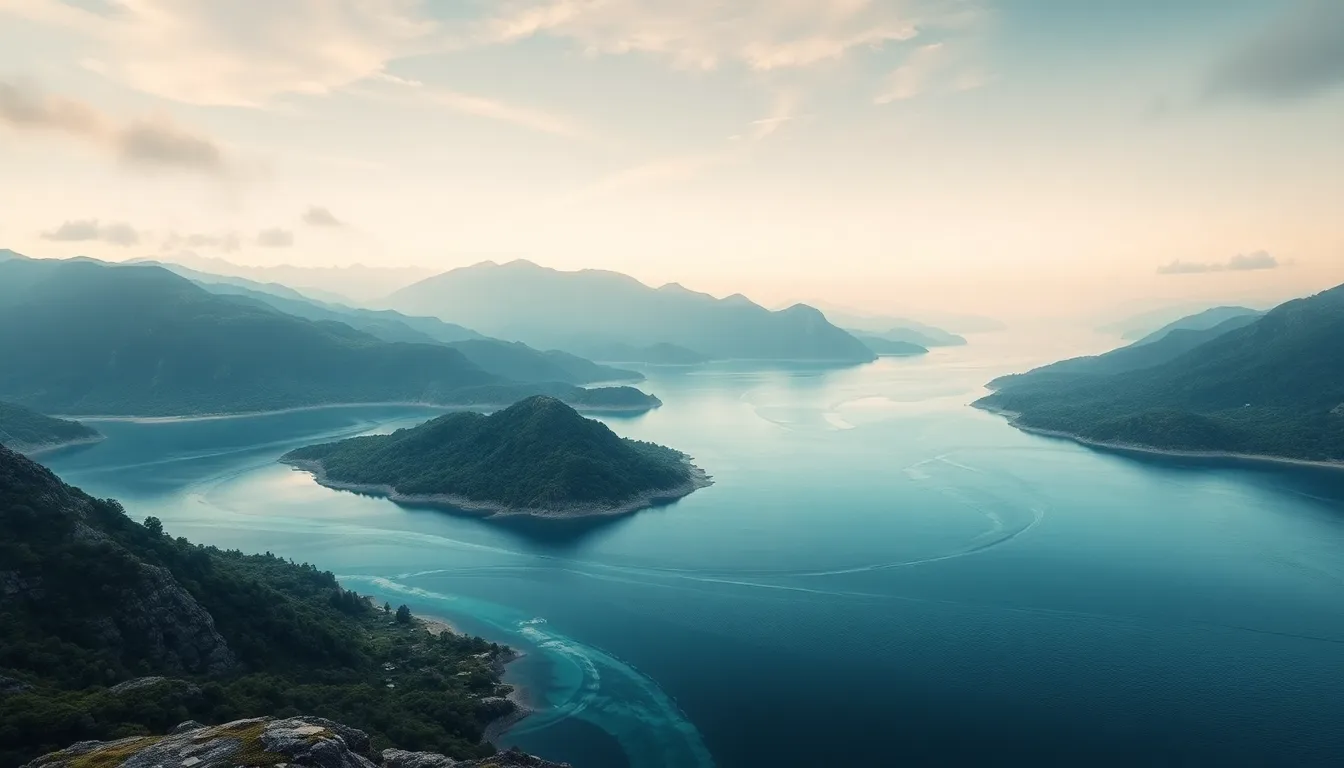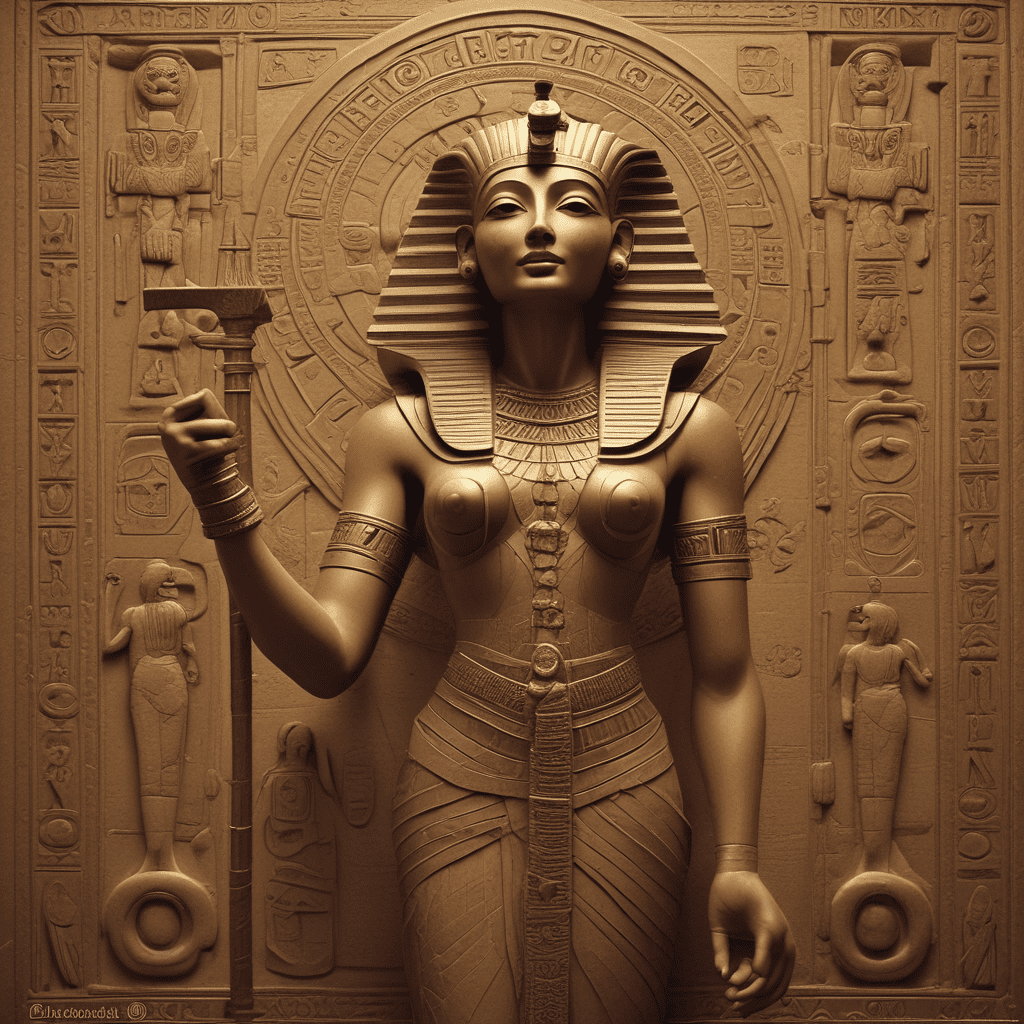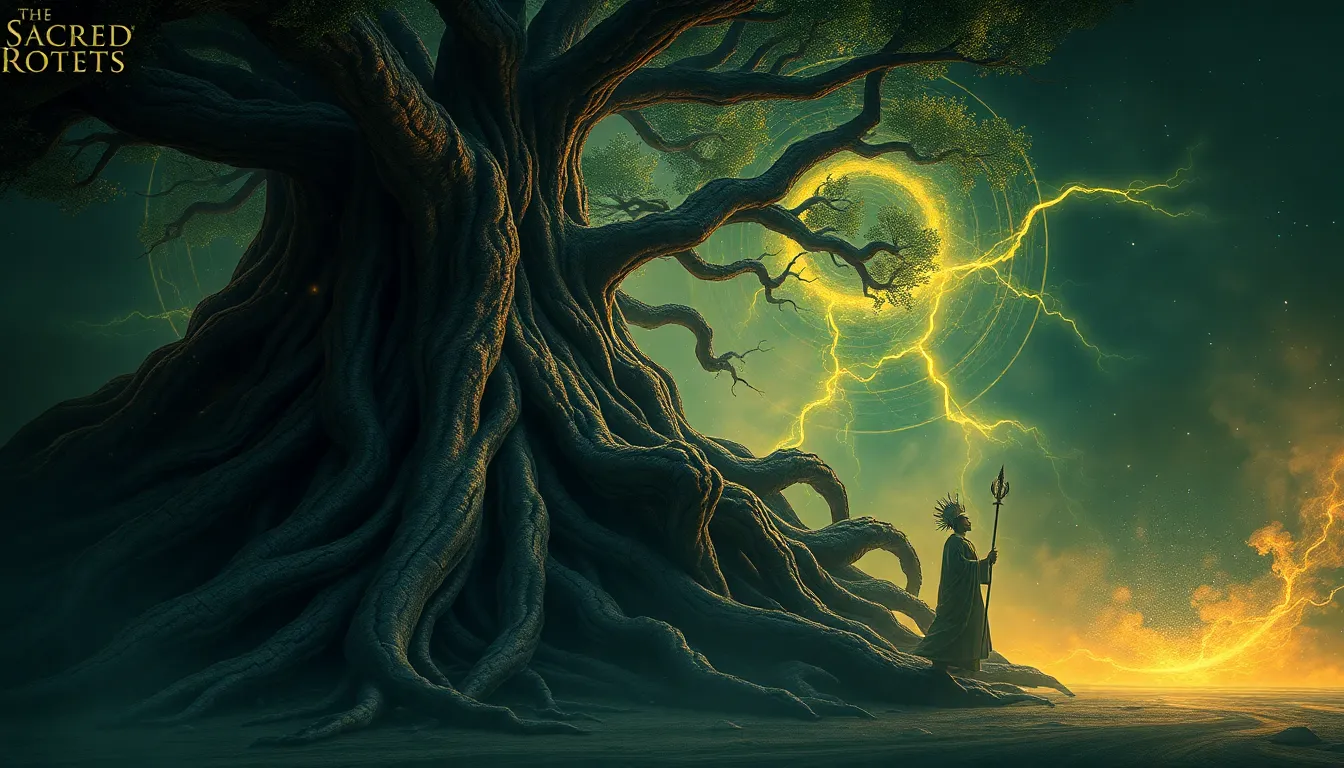The Mythical Waters: Sacred Lakes and Rivers in Lore
I. Introduction
Throughout human history, water has held a significant place in mythology and culture. Sacred waters, including lakes and rivers, are often seen as the lifeblood of the earth, embodying both physical sustenance and spiritual essence. Across various cultures, these bodies of water are revered for their mystical qualities and are often associated with creation, cleansing, and the divine.
This article explores the importance of sacred lakes and rivers in different cultures, delves into their mythological significance, and examines the rituals and practices that honor these waters. We will also consider their contemporary relevance and the environmental challenges they face today.
II. The Role of Water in Mythology
Water is a powerful symbol in mythology, representing various concepts across cultures. It often embodies:
- Life: Water is essential for survival, making it a symbol of fertility and growth.
- Purification: Many cultures use water for spiritual cleansing, signifying renewal and rebirth.
- Chaos and Order: Water can represent both creation, as in the primordial ocean, and destruction, as in floods.
Additionally, many myths feature creatures that inhabit sacred waters, such as:
- Mermaids and sirens, often seen as protectors or temptresses.
- Water spirits and deities, such as Naiads and Nymphs, who are believed to influence the health of the waters.
III. The Sacred Lakes of the World
Many lakes around the globe are steeped in mythological significance, each with its own unique story.
A. Lake Titicaca: The Incan Origin of Creation
Located on the border of Peru and Bolivia, Lake Titicaca is considered the birthplace of the Incan civilization. According to legend, the first Incan king, Manco Capac, emerged from its waters. The lake is revered as a sacred place, and its islands are sites of pilgrimage.
B. Lake Baikal: The Deepest Lake and Its Spiritual Significance in Siberian Culture
Lake Baikal, the deepest freshwater lake in the world, is considered a sacred site by the Buryat people of Siberia. They believe the lake is the home of the spirit of water, and it is often associated with healing and protection.
C. The Lake of Avalon: Mythical Connections to Arthurian Legend
In Arthurian legend, Avalon is often depicted as a mystical island lake where King Arthur was taken to recover from his wounds. This lake symbolizes a place of magic, healing, and transformation.
IV. Rivers of Legend and Lore
Rivers have also played a crucial role in mythology, often serving as symbols of passage and transformation.
A. The River Styx: The Boundary Between the Living and the Dead in Greek Mythology
In Greek mythology, the River Styx is the boundary between the realm of the living and the dead. Souls are ferried across by Charon, emphasizing the river’s role in the journey after death.
B. The Ganges: A River Revered in Hinduism and Its Sacred Rituals
The Ganges River is considered the holiest river in Hinduism. Pilgrimages to its banks for ritual bathing are believed to cleanse one’s sins and promote spiritual rebirth.
C. The Nile: Ancient Egyptian Beliefs and the River’s Life-Giving Properties
The Nile River was central to ancient Egyptian civilization, symbolizing life and fertility. The annual flooding was seen as a gift from the gods, allowing for agriculture and sustaining life.
V. Cultural Rituals and Practices Associated with Sacred Waters
Across cultures, various rituals and practices celebrate sacred lakes and rivers, including:
- Pilgrimages: Many cultures engage in pilgrimages to sacred waters, believing that such journeys bring blessings.
- Ritual Cleansing: Bathing in or pouring water over oneself is a common practice for purification.
- Festivals: Numerous festivals honor water deities and celebrate the life-giving properties of water.
VI. Legends and Myths Surrounding Sacred Waters
Sacred waters are often the focus of numerous legends that encompass both creation and destruction:
- Creation Stories: Many cultures have myths involving lakes or rivers as the source of life.
- Folklore of Water Spirits: Stories abound of spirits that inhabit water and interact with humans, sometimes as benefactors, other times as tricksters.
- Cursed Waters: Tales of cursed lakes or rivers highlight the dangers associated with disrespecting sacred waters.
VII. Sacred Waters in Modern Spiritual Practices
Even today, sacred lakes and rivers maintain their importance in spiritual practices:
- Contemporary Beliefs: Many people continue to view these waters as sacred, incorporating them into modern spirituality.
- Eco-Spirituality: There is a growing movement to protect sacred waters, recognizing their ecological and spiritual value.
- Revival of Ancient Practices: Many cultures are reviving ancient rituals associated with these waters, blending tradition with contemporary beliefs.
VIII. Environmental Concerns and the Sacredness of Water
Despite their sacred status, many lakes and rivers face significant environmental threats:
- Pollution: Industrial and agricultural pollution severely impacts the health of sacred waters.
- Activism: Many communities are mobilizing to defend their sacred waters against environmental degradation.
- Balancing Cultures: Addressing modern environmental challenges while respecting cultural significance is an ongoing struggle.
IX. Comparative Analysis of Sacred Waters Across Cultures
While the beliefs surrounding sacred waters vary, there are both similarities and differences across cultures:
- Similarities: Water is universally recognized as a life-giving force and is often associated with purity and transformation.
- Differences: Specific deities and rituals can differ markedly based on cultural context.
- Geographical Influence: The physical characteristics of bodies of water can shape the mythology surrounding them.
X. Conclusion
In conclusion, mythical waters such as sacred lakes and rivers hold profound significance in cultural narratives across the globe. They embody the essence of life, serve as sites of worship, and are steeped in rich mythology. As we face modern environmental challenges, the legacy of these sacred waters remains vital, reminding us of the interconnectedness of nature and spirituality. Protecting these waters is not just an environmental imperative but also a cultural responsibility, ensuring that future generations can continue to honor and celebrate the mythical waters that have shaped human history.



